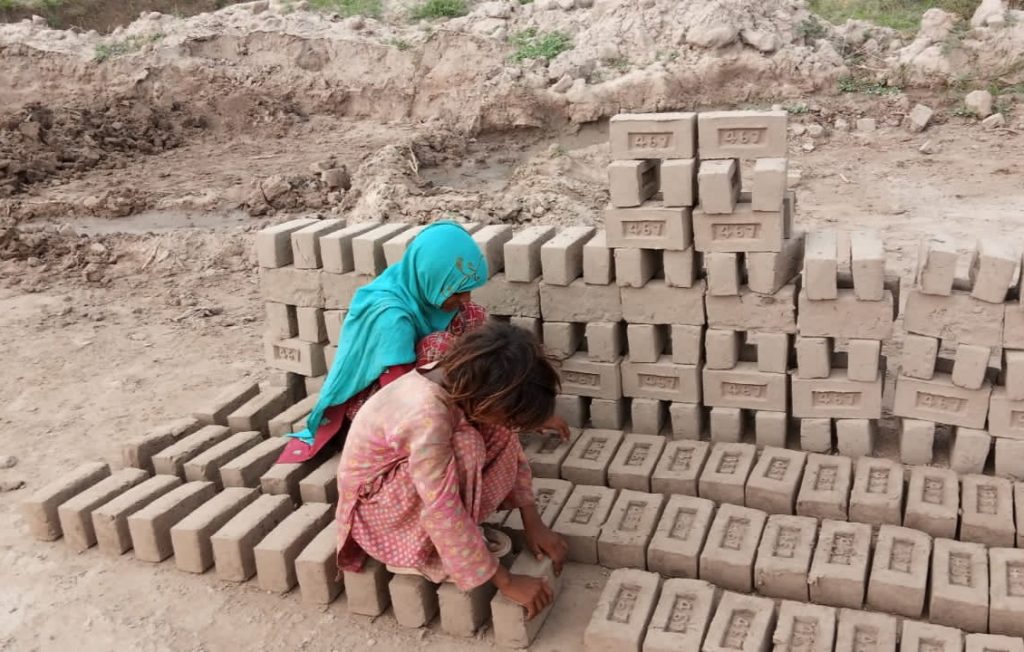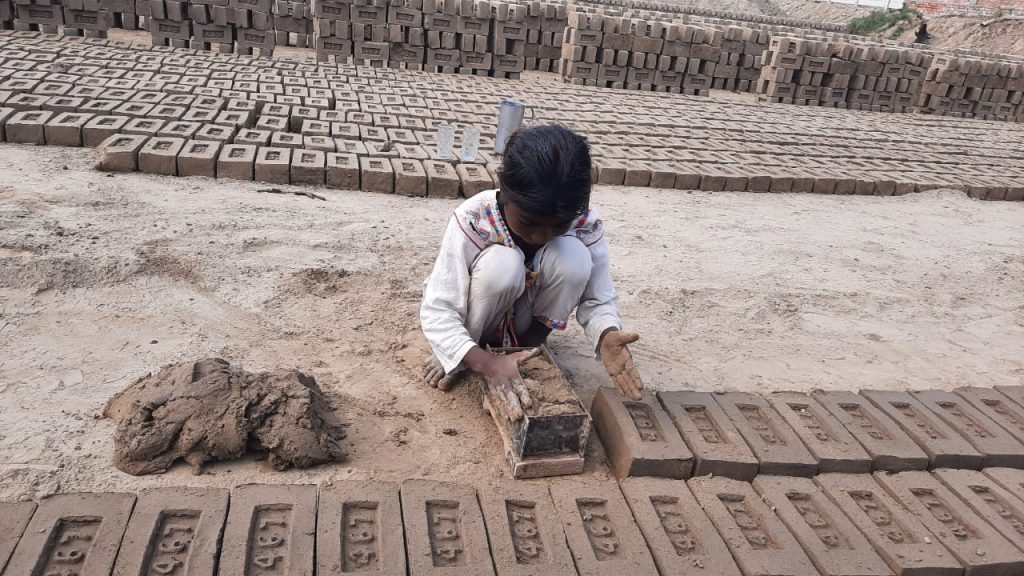Some 4.5 million people, 70 percent of them children, work in appalling conditions in one of the 20,000 brick factories in Pakistan. They are paid so badly that they fall into debt and are at the mercy of their employers. Minorities, including Christians, are particularly affected.
In February 2020, before the Corona crisis, the CSI project officer for Pakistan was able to visit a brickyard near the town of Samundri, Faisalabad district. She recalls: “Even from a distance, you see the chimney of the brick kilns rising into the sky. People stand barefoot in the clay, which children then mold into bricks. They look at us with wide eyes, but they can’t stop what they are doing, because the bricks have to be finished”.
Before we visit the people at their work, we go to see the foreman of the brickyard. Over a cup of tea, he praises his workers and himself. They are like a big family, he says, everyone feels at ease.
But looking around, we get a different picture. We meet a family of seven. The parents and three of their children between the ages of five and 11 are working diligently, their every move is rehearsed.
Blinded by the work
The grandmother, blind from the dust after years of work at the brickyard, sits on a cot and looks after her new-born grandson. She used to make bricks, then her children followed, and now her grandchildren are also involved. She wishes the children could go to school. But they do not have the money to send them and, besides, they need the extra hands.
The two little girls laugh at us. We talk to them while their nimble hands form brick after brick. There is no time to play.
We continue walking and meet a brother and sister. She is 20 years old; he is 22. Both suffer from chronic hepatitis C (liver inflammation). They should get urgent medical help, but they don’t have the money. They carry on as if nothing were wrong.
Four dollars for 1,000 bricks
The plight of these people is by no means unusual in Pakistan. According to estimates, around 4.5 million Pakistanis work in a brick factory. Well over half are Christians but other religious minorities, Hindus and Shiites, are also employed in the brickyards.
Every day, for ten to 11 hours, they mix earth with water and press it into brick-shaped moulds. After drying in the open air, the bricks are baked in kilns at very high temperatures.
The back-breaking work leaves the workers in a poor state of health: many of the workers suffer from asthma and vision problems.
The average daily wage of an entire family, around four dollars per 1,000 bricks, is not enough to cover living costs. As a result, brickyard workers are at the mercy of the factory owner.
Driven by poverty and hardship, people take loans or advances from factory owners to pay hospital bills or buy medicines. The owner charges high interest rates on the borrowed amount, making it almost impossible for them to repay their debts.
In addition, the workers are required to sign documents, which they cannot read, as most of them are illiterate. Debt bondage applies to the whole family and is intergenerational.
During the Corona-related lockdowns poor people slipped even further into poverty as brick factories remained closed, depriving workers of their daily wage. CSI supported up to 100 families with food during this difficult time.



